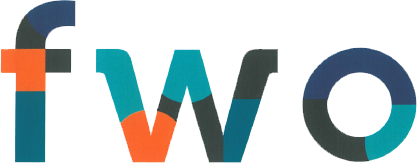Hi, my name is Thomas Van Hoey
[’to:mas van ’huy]
Alternatively, you may find me by my Chinese name — 司馬智
(Hanyu pinyin: Sīmǎ Zhì).
I am a senior postdoctoral fellow affiliated with the Research Foundation of Flanders (FWO, Fonds voor Wetenschappelijk Onderzoek) and hosted by the Quantitative Lexicology and Variational Linguistics (QLVL) research group in the Department of Linguistics at KU Leuven. My current project “Borrowing iconic words” investigates the purported negative relationship between borrowability and iconicity, in a wide number of languages across the world.
Previously, I worked together with Benedikt Szmrecsanyi, also at the same department. The project provided an empirical verification with regard to the idea that increased absolute complexity in language is positively correlated with increased relative complexity. Against typical foundational notions in the field, we found no evidence of this is in a spoken corpus.
Before that, I was a post-doctoral fellow at the University of Hong Kong, in the Language and Development Lab, led by Youngah Do. Our main project, together with Mark Dingemanse and Arthur Lewis Thompson, focused on the learnability of ideophones from a cross-linguistic perspective while focusing on the artiuculatory and gesticulatory gestures of the ideophonic items.
That project was related to my previous qualifications. By training, I am a sinologist and a linguist, with a PhD in Linguistics (obtained at the Graduate Institute of Linguistics of National Taiwan University). My MA degrees in Sinology and Linguistics were obtained at the KU Leuven.
In that work, I have focused on understanding how people construe meaning through ideophones and iconicity, while balancing cognitive and cultural factors. Consequently, my PhD dissertation (2020), “Prototypicality and salience of Chinese ideophones: A cognitive and corpus linguistics approach”, supervised by Lu Chiarung, investigates the Chinese ideophonic lexicon through four different methodological lenses: multiple correspondence analysis, diachronic prototype semantics, semantic vector spaces, and collostructional analysis. A prototypical structuring of the ideophonic lexicon is found throughout the data, which is collected from the corpus as well as the Chinese Ideophone Database (CHIDEOD). CHIDEOD is freely accessible online in multiple formats, and can be used as a model for the cross-linguistic database that is to be constructed in the first stage of the project.
Click here for my academic cv.

